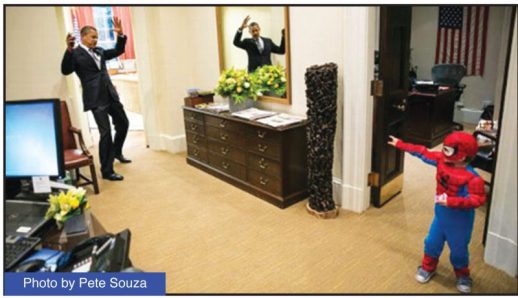
Time magazine on Wednesday, December 19, 2012, named recently reelected US President Barack Obama as its person of the year for 2012 — the second time it has accorded him the accolade.
Obama now not only has a reelection as America’s first black president and a Nobel peace prize under his belt, but he beat fancied runners-up, including brave Pakistani girls’ rights activist Malala Yousafzai, to be enshrined again as Time’s dominant personality of the year.
The venerable American news magazine put Obama on its cover, striking a thoughtful, statuesque pose, and said he deserved the honor as “the symbol and in some ways the architect of this new America.”
 The magazine lauded Obama’s campaigning prowess, noting he was the first president since Franklin Delano Roosevelt to win more than 50 percent of the vote in two straight elections and the first president since 1940 to be re-elected despite a jobless rate above 7.5 percent.
The magazine lauded Obama’s campaigning prowess, noting he was the first president since Franklin Delano Roosevelt to win more than 50 percent of the vote in two straight elections and the first president since 1940 to be re-elected despite a jobless rate above 7.5 percent.
Obama beat Republican Mitt Romney soundly in November’s election to win a second four-year term, despite presiding over a chronic economic slump.
“In 2012, he found and forged a new majority, turned weakness into opportunity and sought, amid great adversity, to create a more perfect union,” said Time, which had named Obama person of the year back in 2008 when he won his historic first presidential election.
Perhaps the most poignant alternative to Obama on Time’s shortlist was Yousafzai, the 14-year-old Pakistani girl who continued to campaign for the right to education after being shot and nearly killed by the Taliban.
The others were Apple CEO Tim Cook, Egypt’s post-revolutionary President Mohamed Morsi, and atomic physicist Fabiola Gianotti.
Person of the year, or what was long called “man of the year,” acknowledges what the magazine considers to be the world’s biggest newsmaker, or influential mover.
Since the tradition started in 1927, US presidents have been systematically featured, as have big names like Microsoft’s Bill Gates, but also more symbolic winners like “the protester” last year or “US scientists” in 1960.
In the past Time has showed its editorial teeth by naming sinister figures _ Adolf Hitler in 1938 and Joseph Stalin both in 1939 and 1942.
But since the leader of Iran’s Islamist revolution, Ayatollah Khomeini, graced the cover in 1979, the magazine has tended to shy from picks that might upset its mostly American readership.
A notable absence was al- Qaeda founder Osama bin Laden in the wake of the September 11, 2001 terror attacks.
Obama could not be a less controversial choice.
Time said he swept to the head of the pack because of his ability to grasp the demographic and social changes shifting the United States.
“The truth is,” Obama told Time, “that we have steadily become a more diverse and tolerant country that embraces people’s differences and respects people who are not like us. That’s a profoundly good thing. That’s one of the strengths of America.”
Time said Obama was about “convergence of past and future” and said his second term would see him being “more assertive, more personal, more willing to risk his political capital for what he truly believes.”









